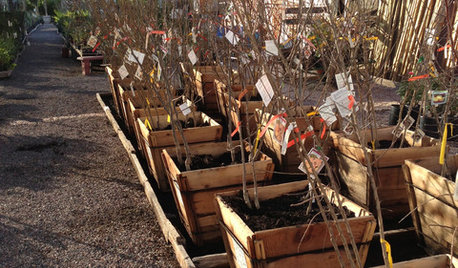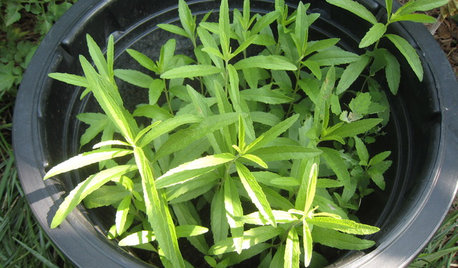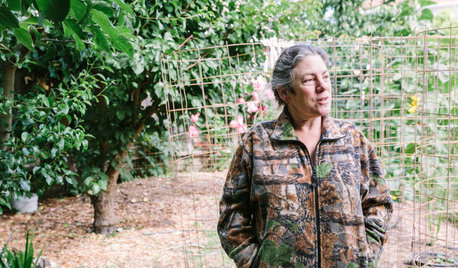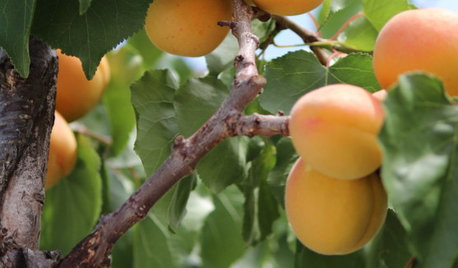I thought I would plant only own-root roses??
sergeantcuff
14 years ago
Related Stories

GARDENING GUIDESThe Beauty of Bare-Root Plants
Plant dormant trees and shrubs in fall using the easy, affordable bare-root method and enjoy beautiful results in spring
Full Story
GARDENING GUIDESGrow Your Own Privacy: How to Screen With Plants and Trees
Use living walls to lower your home and garden's exposure while boosting natural beauty in your landscape
Full Story
LANDSCAPE DESIGNGreat Design Plant: Quaking Aspen for 3-Season Beauty — on Its Own Turf
It offers bright fall foliage, snowy winter bark and lush green leaves in summer. Just don't try to plant quaking aspen away from its home
Full Story
DECORATING GUIDESCreate Your Own Shangri-la With Bird of Paradise Plants
Quintessentially tropical, this broad-leaved beauty can transform bland interiors in the batting of a frond
Full Story
FALL GARDENINGBe Your Own Wildflower Nursery
Gather seeds from your garden in fall, and you'll have a selection of plants for next year — without spending a dime
Full Story
FUN HOUZZEverything I Need to Know About Decorating I Learned from Downton Abbey
Mind your manors with these 10 decorating tips from the PBS series, returning on January 5
Full Story
FARM YOUR YARDTo Get the Food They Believe In, These Urbanites Grow Their Own
Home gardeners farming on their city lots find that local, organic food isn’t the only reward
Full Story
FARM YOUR YARDIf You Have Room for Only One Fruit Tree ...
Juice up a small garden with one of these easier-care or worth-the-effort fruit trees for a mild climate
Full Story
GARDENING AND LANDSCAPINGCitrus 101: Start Your Own Backyard Orchard
This Earth Day Weekend, Add Some Green, Style and Deliciousness to Your Landscape
Full Story
MODERN ARCHITECTURERoots of Style: International Style Celebrates Pure Form
Using technology and materials of the time, International style is always current. See its expression in these 16 homes around the world
Full StoryMore Discussions








jim_w_ny
mad_gallica (z5 Eastern NY)
Related Professionals
New Bedford Landscape Architects & Landscape Designers · Bridgetown Landscape Architects & Landscape Designers · Camas Landscape Architects & Landscape Designers · Glendora Landscape Architects & Landscape Designers · Aurora Landscape Contractors · Elgin Landscape Contractors · Surprise Landscape Contractors · Cedar Hill Landscape Contractors · Cockeysville Landscape Contractors · Louisville Landscape Contractors · Glenn Heights Swimming Pool Builders · South Miami Heights Swimming Pool Builders · Framingham Siding & Exteriors · Point Loma San Diego Siding & Exteriors · Clearfield Siding & Exteriorsolga_6b
sergeantcuffOriginal Author
User
rideauroselad OkanaganBC6a
vettin
mad_gallica (z5 Eastern NY)
User
lori_elf z6b MD